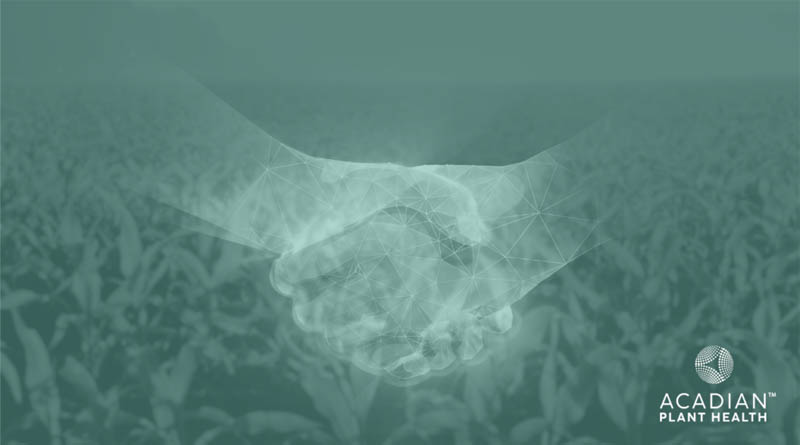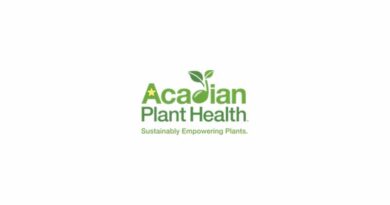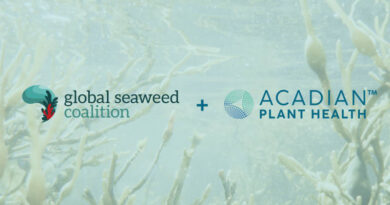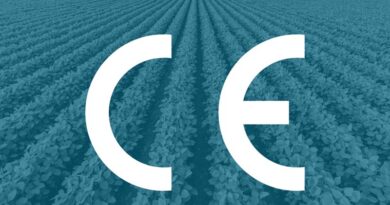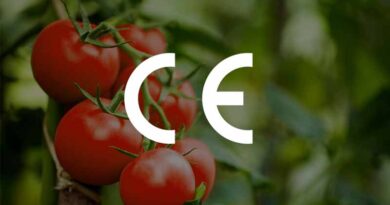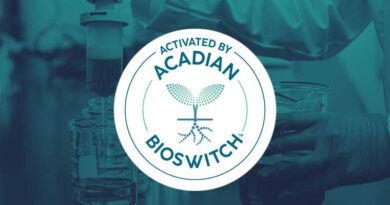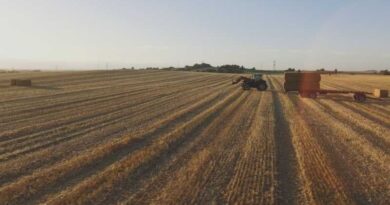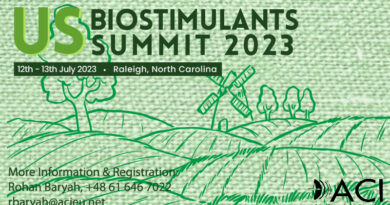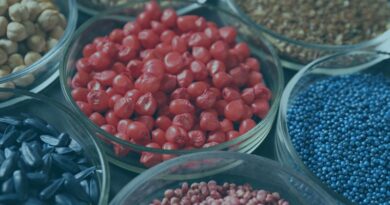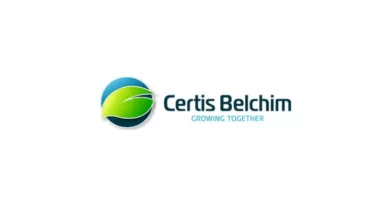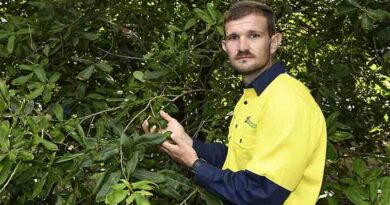The Power Of Collaboration In Advancing Sustainability Means Actively Engaging In Partnerships With Industry Leaders And Innovators
26 July 2023, US: “Sea Beyond is our new vision, leadership, and commitment to providing innovative and sustainable solutions for global agriculture. We are challenging conventional thinking to Sea Beyond the way the biostimulant industry delivers agricultural solutions that respond to the growing global demand for food and climate stress,” said Jozef Michrina, VP Marketing at Acadian Plant Health in a recent interview with AgroPages. Jozef also shared his views on Acadian Plant Health’s newly branded vision ‘Sea Beyond’, seaweed extract solutions and unique advantages, cooperation with industry leaders and innovators, the plans to launch new products, extend to new markets, and more.
- Could you introduce the value chain and newly branded vision ‘Sea Beyond’ of Acadian Plant Health(APH)? What’s the strategic significance of it?
‘Sea Beyond’ is our new vision, leadership, and commitment to providing innovative and sustainable solutions for global agriculture. We are challenging conventional thinking to ‘Sea Beyond’ the way the biostimulant industry delivers agricultural solutions that respond to the growing global demand for food and climate stress.
In speaking with customers, we realized that there is a misconception of ‘either/or’ when it comes to performance and sustainability. There is a perception that you couldn’t get the yield needed with biological products. So, we decided to challenge this conventional thinking. Working together with our industry partners, our biostimulants promise stronger yielding crops in a sustainable manner, which we have been proving with science for the past 40 years. What we must do as an industry now is see beyond the current state of the agricultural inputs industry and offer solutions that provide high-value, crop productivity technology that shifts from a peripheral add-on to an essential component of sustainable agriculture. The world is changing, and we know things must change on a global basis.
- APH was recognized as a Top Climate-Smart Company and became GLOBALG.A.P. member successively. What are the reasons for being selected? What’s the value and significance to APH?
We earned the designation of Top Climate-Smart Company for the proven impact of our seaweed extract-based biostimulant products in helping sustainable agriculture. In addition to the Ascophyllum nodosum seaweed extract product itself, Acadian’s production processes and holistic commitment as an organization to operate sustainably were a significant aspect of the selection.
Officially becoming a GLOBALG.A.P. community member means we are advancing the principles of safe, socially, and environmentally responsible farming practices around the globe through collaboration, exchange, and dialogue. We intend to contribute to agriculture industry standards and work alongside like-minded stakeholders towards environmental objectives with the company’s regenerative seaweed-based extracts, which can more sustainably improve crop farming in the future.
We believe we have a role to play in helping farmers around the world achieve performance and sustainability in the field while contributing to mitigating the impacts of climate change.
- Could you talk about APH’s seaweed extract solutions and unique advantages compared with other competing products and categories like humic acids, amino acids and microbial biostimulants etc.? Highlight some innovation solutions and their application situation.
Unlike other alternatives, seaweed from the ocean not only provides plant health benefits it also holds huge potential to support global climate goals. Acadian’s seaweed harvesting methods multiply seaweed’s carbon-capturing capabilities—akin to mowing a lawn. Seaweed sequesters carbon 20x faster than trees. For every ton Acadian harvests, 362kg of carbon is absorbed, equivalent to the emissions of a commercial flight from Canada to Hawaii.
This captured carbon is then transferred into Acadian extracts and applied to seed, soil and foliage as part of a complimentary crop input. As a result, farmers will see increased plant and root biomass in plants, which in turn increases soil organic matter, as well as eliciting plants to withstand abiotic stress at the same time as feeding the soil microbiome and creating ‘living soil’. This living soil improves plant health and ultimately increases the photosynthetic capacity of the plant – a key component to removing more atmospheric carbon. This virtuous cycle has a fundamental place in sustainable agriculture.
Additionally, at Acadian, we are always looking at what’s next. It’s part of our DNA and how we ‘Sea Beyond’. Part of our focus is on researching adding other compounds to our seaweed extracts. The goal is to optimize the benefits of Ascophyllum nodosum and further unlock the potential of the product.
- Acadian Plant Health was one of the first biostimulant companies to be approved under the new European Union Product Regulation as part of new Green Deal. What are the key considerations and challenges for getting speedy approvals?
The new EU regulation was a landmark decision in world agriculture concerning plant biostimulants. It formally defined plant biostimulants in an official regulation, and it created a regulatory category for plant biostimulants as a subset of fertilizing materials, which is exactly what the industry has been asking for. However, the new regulation did come with its challenges. It’s an imperfect regulation, considering it doesn’t fit all existing variations of biostimulants, but fortunately the seaweed biostimulants that we manufacture do fit very nicely into the new regulation. But it certainly was a learning process.
Acadian’s membership in the European Biostimulants Industry Council (EBIC) allowed us insight into the development of this regulation and the subsequent technical standards that came along with it. While we didn’t know everything about what was going to come, we did have a good knowledge of what to expect because EBIC was so closely aligned with those Commissions that were putting the regulation together. Companies that were members of EBIC certainly had a better overview of what was coming than those outside of this industry association.
One of the initial challenges around the new regulation was that your product or company needed to be assessed for conformity to determine if it complied with the requirements of the regulation. To do that, the EU had accredited several conformity assessment bodies that would look at a company’s dossier and determine whether it complied.
The second and largest challenge was the unknown surrounding how these bodies would evaluate our product. The actual technical standards for the plant biostimulant category had only recently been published just prior to the regulation coming into force.
We were pleased to find that this was a collaborative process ― a collaboration of the conformity assessment body where they looked at the information we submitted, came back to us with questions, and allowed us to augment the dossier. It was a relatively smooth process after that.
- To our knowledge, APH built cooperation with multinational companies and incorporated its biostimulants within their product portfolios. Could you talk about APH ‘s strategic partnership with them?
We recognize the power of collaboration in advancing sustainability, and actively engage in partnerships with industry leaders and innovators to shape a more sustainable future for agriculture. We believe what we must do as an industry is see beyond the current state of the agricultural inputs industry and offer solutions that provide high-value, crop productivity technology that shifts from a peripheral add-on to an essential component of sustainable agriculture. The world is changing, and we know things must change on a global basis.
Our expertise in both productivity and sustainability is what makes us stand out from other biostimulant companies. We are built to serve the crop protection, biostimulant, and fertilizer industries with our unique organizational structure of crop input professionals and scientists – who all understand the standards within these industries. This means we have the science, research, facilities, and, most importantly, the people, to formulate the best of our biostimulant technology to design synergistic and complementary solutions to crop protection, fertilizer and biostimulant companies.
- What are the plans to launch new products and extend new markets? Highlight the development plan in the Chinese market.
We are a global company and sell products in over 80 countries. The global seaweed extracts biostimulant market is expected to grow at a CAGR of 12.9% in the forecast period of 2023 to 2030. Europe is expected to dominate the global seaweed extracts biostimulant market, with strong indications in Brazil and Asia as well. We continue to support these regions providing a wider range of seaweed extracts biostimulant products to drive the market’s expansion. In addition, our R&D and the modernization of seaweed extracts product in these markets have opened up more business potential for Acadian Plant Health – further influenced by the rising need for sustainable agriculture.
The biostimulant market in China is focused mainly on vegetables and fruits, however, Acadian plans to extend usage in field crops as well. We will continue to collaborate with partners to develop tailor-made solutions and develop novel formulations that optimize our seaweed extracts for increased abiotic stress management.
- Could you update on the regulatory landscape for the global major biostimulant markets? What impact do these regulations have on your company’s business?
Acadian Plant Health™ and the entire agricultural community are excited by the recent introduction of The Plant Biostimulant Act in the US. This legislation has the potential for positive impacts in the development and use of sustainable ag products to meet the emerging agricultural challenges facing the food supply chain.
Biostimulants have significant potential benefits for growers and their sustainability footprint, such as improved soil health, enhanced abiotic stress tolerance and nutrient use efficiency, and ultimately increased yield and quality. Defining and properly regulating these products is an important first step in getting these tools into farmers’ hands.
For Acadian, this will open the door to plant biostimulants being uniformly regulated as an emerging category of fertilizing materials, where appropriate claims on their benefits will be permitted. This clear pathway to market will give industry the confidence to invest in the sector and put these innovative products into the hands of growers, allowing the agricultural industry to produce more food while protecting the environment.
Also Read: ITC releases an exclusive postal stamp on Millets in collaboration with India Post
(For Latest Agriculture News & Updates, follow Krishak Jagat on Google News)

